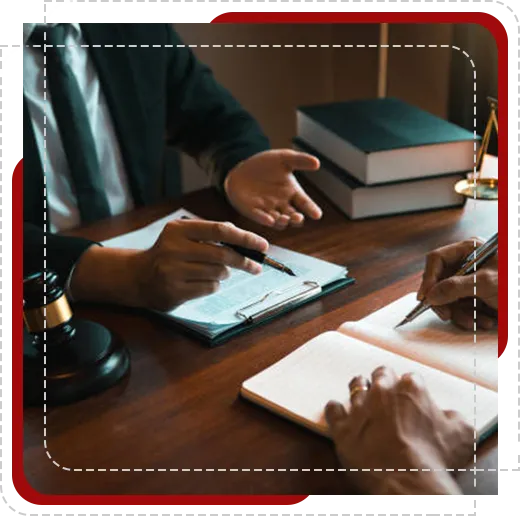

Probate Attorney
We Provide the Probate Help You Need in Plano When a Loved One Passes Away. The most common tasks that will need to be taken care of in probate include:
- Proving the will of the deceased is valid
- Putting together an inventory of the properties and other assets
- Settling debts from the estate
- Handling any tax burdens
- Distributing the remaining assets according to the desires of the deceased
Get Free Consultation
Disclaimer: By signing up via text, you agree to receive recurring automated marketing messages, including cart reminders, at the phone number provided. Consent is not a condition of purchase. Reply STOP to unsubscribe. Message frequency varies. Msg & data rates may apply. Your Privacy is our priority. Your information will not be shared.

What Is Probate?
If you’ve never gone through the process before, it can be confusing. Probate is the legal process of ensuring the orderly transfer of property from the person who has died to the people entitled to receive the property. Probate includes a variety of different activities, depending on factors related to the estate of the deceased.
Determining what needs to be done can be difficult, especially at a time when you may be in shock from your loss. Consulting a Texas probate attorney as soon as possible can ease your burden and ensure that you don’t miss any deadlines or fail to take important legal steps. When you schedule a free consultation with probate attorney Aaron Miller in Plano, he will answer all of your questions and help you get the probate process started.
Types of Probate in Texas

Independent administration
When there is a correctly-executed will left behind that names someone as executor to the estate, it’s most likely that the estate will go through the simpler probate process of independent administration. With this type of probate, the estate’s personal representative or executor does not need a surety bond and has a fair amount of independence to finalize the estate as he or she sees fit.

Dependent administration
The court will appoint an administrator to handle the process, since there is no will to name an executor. The administrator needs to obtain a surety bond (as a form of insurance) and will need to seek the court’s permission before performing certain actions.
Seven Steps to Handling Your Loved One’s Estate
1 Take an inventory of property and documents. Using the checklist provided in our free book, locate and list important documents and assets.
2 Notify Social Security. If your loved one was receiving Social Security benefits, you must notify the agency of the death. Payments will then stop immediately.
3 Get property secured. Remove valuables from the house and make sure the house is secured against theft and vandalism. Place important papers in a lock box and stop mail delivery to the house. Keep a list of all items removed or secured.
4 Deal with outstanding debt. Debts are not forgiven upon a person’s death. You may want to freeze the decedent’s bank accounts and consult an attorney about paying off debt out of the estate.
5 Open claims for insurance benefits. You will have to locate life insurance, health insurance, and retirement accounts and notify them of the death so that they can begin to pay out any proceeds to beneficiaries.
6 Identify additional benefits. Determine whether the decedent had other plans that offered survivor benefits and notify those providers of the death.
7 Contact a probate attorney. An attorney can do many of these things for you and will also be able to take care of any other issues with your loved one’s estate.

Get Your Free Consultation Call With Us
Some of Our Happy Clients

“Go to Miller Law office–they will take care of you and you will feel comfortable as that is important. Aaron is one nice guy!!! Thanks Aaron!”
-Lonnie and Donna D., Plano

“Mr. Miller of Miller Law office gives excellent service and advice, and cares about his clients.”
-Brian and Trena D., Wylie, Texas

“Miller Law Office was great in helping us with an estate plan that suited our needs for the present and the future.”
-Richard and Mary B., Alvarado, Texas
© 2025 Miller Law Office, PLLC | All Rights Reserved
This site is not a part of the Google website or Google LLC. Additionally, This site is NOT endorsed by Google in any way.
GOOGLE is a trademark of Google, LLC. Website Development for Probate Attorney and Pay Per Click for Probate Attorney by DiscoverMyBusiness